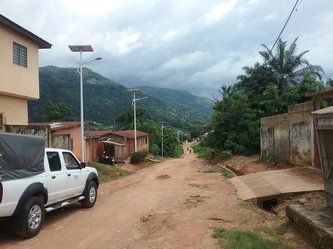About the project
Over the last decade, a number of governments in Sub-Saharan Africa have become less dependent on aid from their traditional partners. They increasingly rely on other revenue sources such as VAT and income taxes, income from natural resources, and financial loans from non-traditional donors such as China or from the international private capital market.
At the same time, the policy priorities of these countries’ governments appear to be changing as they become less dependent and reclaim ownership. Whereas poverty reduction and social service provision were highly prioritised around the turn of the Millennium, focus now appears to have shifted towards infrastructure, power supply, and industrial policy.
Declining aid dependence and more country ownership over policy are clearly desirable. However, we know little about how the changes in the composition of revenue providers affect bargaining over revenue and ultimately public policy. Revenue bargaining processes are inherently political. They are affected by the countries’ political settlements and electoral pressures.
This proposed research programme explores how formal and informal revenue bargains affect public policies. We offer a contextual political settlement analysis in order to better understand the politically mediated influence of the main revenue providers.
We do this by combining a macro-historical comparative study of Uganda and Tanzania over time with a micro-level study of specific instances of revenue bargaining. Uganda and Tanzania are typical examples of the changing composition of revenue providers that African governments experience and yet, despite many similarities, their political settlements differ substantially in terms of the number of and degree of conflicts between powerful factions. Therefore, they make for good cases of comparison.
A working paper exists and can be requested from Anne Mette Kjær at mkjaer@ps.au.dk
